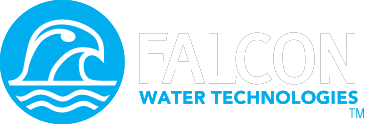FOR IMMEDIATE RELEASE
LOS ANGELES, CALIFORNIA — JULY 7, 2015
Falcon Waterfree Europe GmbH, the European arm of Falcon Waterfree Technologies, LLC, the leader in water conservation technology and solutions for the commercial restroom, announced that it has closed a deal to acquire Enswico Group’s global operations, an industry leader in water conservation products. This acquisition continues Falcon’s strategic goal to be the leader in providing the most comprehensive water conservation technologies. Falcon’s existing technology has saved an estimated total of 20 billion gallons / 75 billion liters of water over the last ten years.
“The Enswico team is world class and is passionate about the same thing we are—creating the highest caliber water conservation technologies for the commercial restroom,” stated Simon A. Davis, President and CEO of Falcon. “By leveraging the strengths of a combined team, we are now able to offer the most comprehensive water technology solutions globally.”
“We found the perfect match with this deal. The power of Falcon combined with Swiss Environmental Technology (SET) will create many innovative synergies,” said Dr. Michael Wächter, General Manager of Falcon Europe.
ABOUT FALCON
Founded in 2000, Los Angeles-based Falcon Waterfree Technologies is the leader in the waterless urinal market. Falcon has offices in 6 countries and distribution affiliates in more than 50 nations, including marketing partnerships with some of the world’s best known urinal and washroom products manufacturers such as Sloan Valve Company, Bobrick Washroom Equipment, Corona, Ideal Standard and many others. Falcon urinals are in use worldwide in entertainment venues, educational facilities, airports, restaurants, office buildings, and many other types of commercial and governmental facilities. Falcon urinals use a patented cartridge system that can save an annual average of up to 40,000 gallons / 151,000 liters or more of fresh water per urinal. Falcon urinals eliminate most related sewage costs, reduce carbon emissions by eliminating the energy needed to transport water and sewage, and are up to five times more hygienic than flush urinals. Falcon is privately owned by entities of Mapleton Investments and Capricorn Investment Group. For more information visit www.falconwaterfree.com.
ABOUT ENSWICO
Enswico is a Swiss company committed to develop Cleantech products operating entirely without water worldwide, following the long tradition in Switzerland, the land of water, of sustainably using valuable water resources. In this spirit, Enswico applies its know-how and innovative power responsibly to develop ecologically practical and economically sustainable solutions. In addition to the most advanced Swiss-made Cleantech products, Enswico offers comprehensive consulting and supportive services worldwide.





